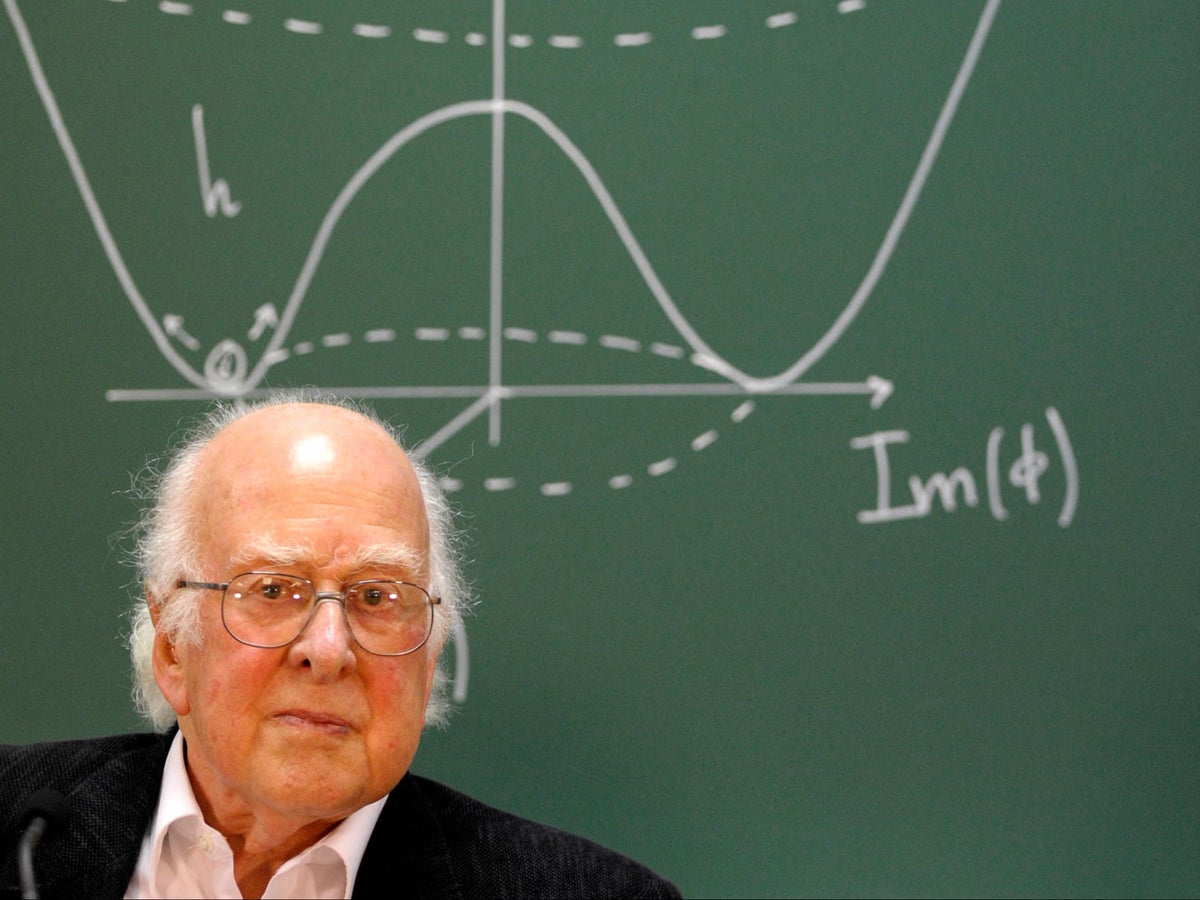Peter Higgs, the “truly gifted scientist” who proved the existence of subatomic particles, has died aged 94.
Higgs, an emeritus professor at the University of Edinburgh, won the Nobel Prize and many other accolades for his work on the Higgs boson, which showed how it gives the universe its shape. The search for proof of the particle’s existence became one of science’s greatest projects, and it was discovered in 2012 using the Large Hadron Collider.
The significance of this research is so great that the Higgs boson has been dubbed the “God particle,” although many scientists reject the name. Higgs himself despised the fame his discovery brought, telling the BBC it was “a bit annoying”.
The university said Higgs died at his home in Edinburgh on Monday after a brief illness.
Sir Peter Matthiessen, Vice-Chancellor and Vice-Chancellor of the University of Edinburgh, said: “Peter Higgs was an outstanding individual, a truly gifted scientist whose vision and imagination enriched our understanding of the world around us.
“His groundbreaking work inspired thousands of scientists, and his legacy will continue to inspire many more generations to come.”
Higgs was born in Newcastle in 1929. He first studied at King’s College London and took up a post at the University of Edinburgh in 1960, where he worked until his retirement in 1996.
He has revealed that he turned down a knighthood in 1999 because he didn’t want any title. However, he did receive recognition from the late Queen in 2014, being named an honorary companion in a ceremony at the Palace of Holyroodhouse.
In 1964, he proposed a theory of how particles acquire mass, a theory that hinged on the particle that would eventually bear his name. It showed that all physics depends on a special particle – the Higgs boson – that is necessary for the existence of the universe but had not yet been discovered.
About 50 years later, CERN’s Large Hadron Collider discovered evidence of the Higgs particle, confirming the Standard Model of physics and Higgs’ work. This led to him receiving the Nobel Prize a year later, which he shared with another physicist, François Englert, who proposed the same theory simultaneously and independently of Higgs’ work.
CERN Director General Fabiola Gianotti described Professor Higgs as a “very inspiring figure”.
“In addition to his outstanding contributions to particle physics, Peter was a very special person, a huge inspiration to physicists around the world, a rare and humble man, a great teacher, Someone who explained physics in a simple yet profound way,” she said.
“An important part of CERN’s history and achievements is associated with him. I am very sad and I will miss him terribly.”
Brian Cox, a particle physicist and professor at the University of Manchester’s School of Physics and Astronomy, said Professor Higgs’ name “will be remembered as long as we study physics”.
Sir Ian Blatchford, director and chief executive of Science Museum Group, paid tribute, saying Higgs was “a brilliant scientist who helped us understand the fundamental building blocks of the universe”.
Follow us on Google news ,Twitter , and Join Whatsapp Group of thelocalreport.in
